As if finding and keeping a job isn’t hard enough these days, in the near future all of your skills and years of experience may be lost to a robot. It’s hard to believe, but by the end of this century, it’s predicted that about 70% of today’s occupations will likely be replaced by automation. Robots are already analyzing documents, working long days on farms and assisting the staff of busy hospitals, and they’re doing it all for free. Read on below to see if your job could possibly be endangered by artificial intelligence.
Pharmacists
Don’t be surprised if a robot comes to the desk next time you visit the local drug store to pick up your prescription. In some pharmacies, such as the UCSF Medical Center, robots are already working behind the shelves, counting, preparing, and tracking medications. With robots taking care of processing prescriptions, UCSF pharmacists and nurses are able to focus their expertise on direct patient care. The goal of the automated hospital pharmacy is to improve patient safety, and so far, out of the millions of doses of medication that have been prepared, not a single error has occurred. The future looks promising for these robo-pharmacists.
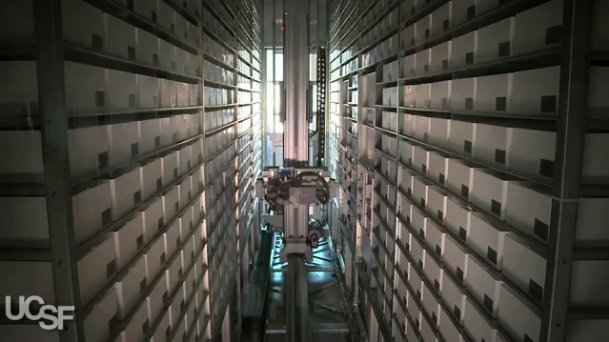
One of UCSF's robot-pharmacists hard at work. Image via UCSF.
Astronauts
NASA is known for developing extraordinary technology, including highly intelligent robotics to assist astronauts working and living in space. But someday soon, manned missions may be eliminated altogether, and instead, robots without their human counterparts may be launched into space to explore on their own. NASA’s Robonaut 2, a humanoid robot, is equipped with a wide array of sensors and five-fingered hands. As of right now it can handle mundane tasks such as cleaning the Space Station and assisting humans in space operations, but future jobs for this human-want-to-be might include venturing outside the Space Station to make repairs and even perform scientific work. It’s fair to say that using an extremely intelligent robot for dangerous space exploration is safer than sending a human.
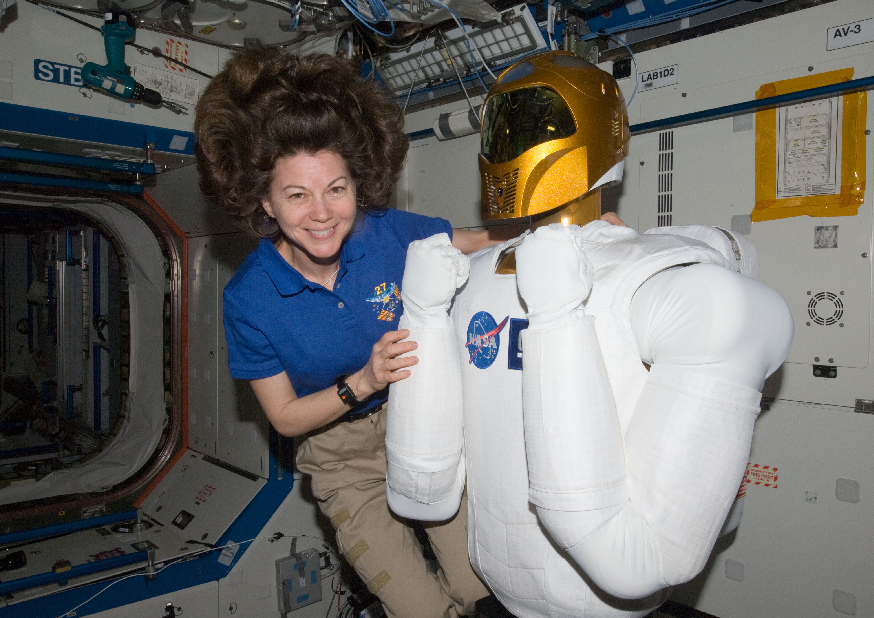
NASA's Robonaut 2 on board the ISS. Image via NASA.
Store clerks
Replacing store clerks with automation shouldn’t come as a surprise—it’s been a long time coming. Many stores are already equipped with self-checkouts, and companies are always looking to sell more products with fewer employees. Self-service machines are becoming increasingly common, reducing the need for checkout clerks. Billions of dollars have already been transacted through self-service machines, and by 2014 the number is expected to reach $1.1 trillion.
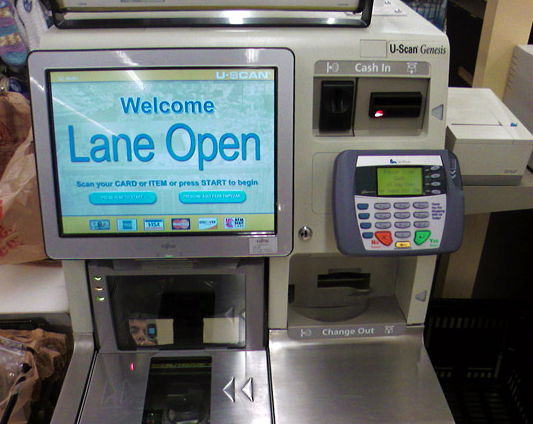
Self-checkouts are rapidly replacing store clerks. Image via thekitchn.com.
Drivers
Google’s self-driving cars are being developed to increase safety and help people reduce the time spent commuting to work. Think it’s too good to be true? Seven test cars have already driven 1,000 miles without human intervention, though human supervisors were in the passenger seat, and drove more than 140,000 miles with occasional human control. According to Google engineer Sebastian Thrun, the cars have crossed the Golden Gate Bridge, navigated the Pacific Coast Highway, and made it around Lake Tahoe. Collision-proof self-driving cars are on track to radically changing our lives.
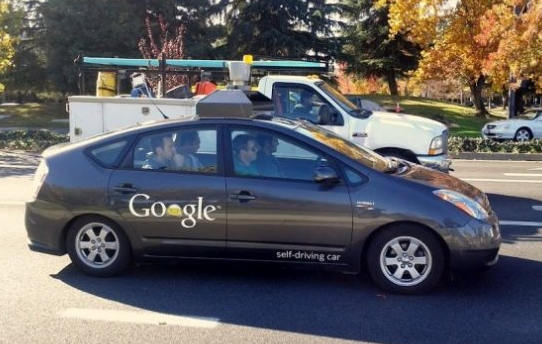
Google's self-driving car. Image via androidauthority.com.
Soldiers
Soldiers haven’t been replaced by armies of robots, at least not yet. But with drones and other machines increasingly being used in high-risk situations, we seem to be moving in that direction. More than 70 countries already use intelligently programmed unmanned drones. MAARS (Modular Advanced Armed Robotic System), made by Foster-Miller, for example, has provided armed robots in Iraq. The robot is equipped with a GPS monitor. It is programmed to differentiate between fire and no-fire zones. It can open doors, and even drag injured bodies to safety. In the not-so-distant future, autonomous machines may be in control of life and death.
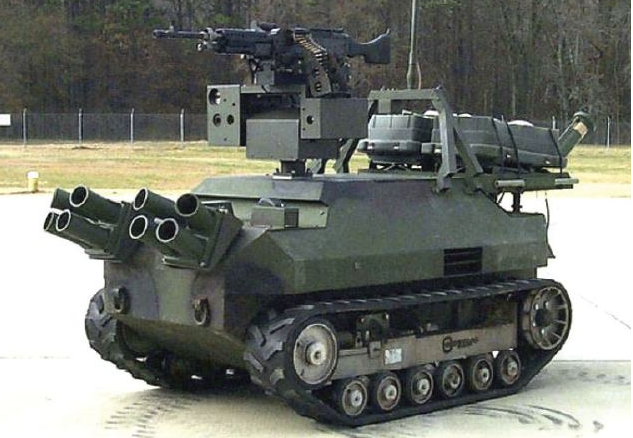
The Modular Advanced Armed Robotic System. Image via militaryphotos.net.
Difficult to believe? Do you think robots will someday rule the world? Let us know – leave a comment below!
Advertisement
Learn more about Electronic Products MagazineMouser Electronics





